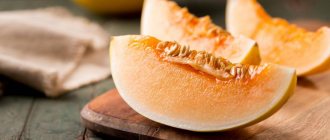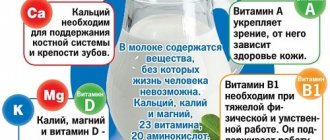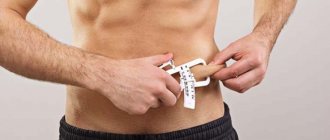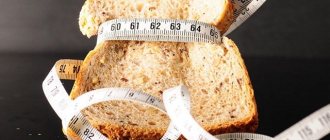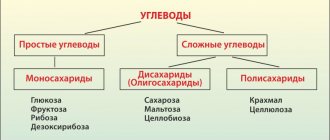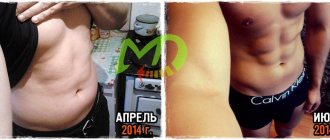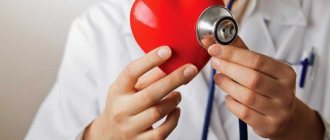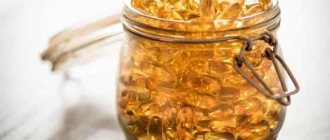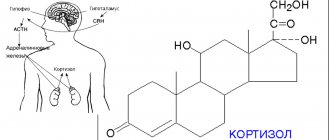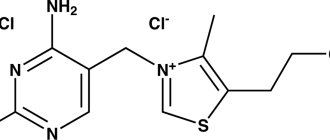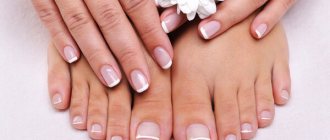The health benefits of drinking water are many and it is the second most important element for sustaining life after air. We can survive weeks without food, but without water we will be 2 meters underground in just a few days. Staying well hydrated is not only very important for health and survival, but also for physical performance and is an essential component for muscle growth. We all understand the importance of working out, consuming enough protein, calories and everything else in order to build muscle. Water intake is also important, but it is often an overlooked element. Most of our body weight consists of protein and water. At the same time, about 65 percent comes from water. Thus, someone who weighs 85 kilograms will have about 55 kg of water from their total weight. To maintain your body weight, you need to consume the right amount of fluid every day. Before you consider how much you need, read below about some of the important roles that water plays in the human body and why it is so important for muscle growth.
Why does a bodybuilder need water?
Water is important for a bodybuilder due to the following reasons:
- An athlete's body needs increased amounts of fluid . During exercise, the body heats up and produces sweat to cool itself. Without excess water, the body begins to collect water from all internal organs in order to release it to the surface and save a person from heatstroke. Lack of water leads to deterioration in the functioning of internal organs, rapid fatigue, and heat stroke during exercise;
- Water is the main component of glycogen . Glycogen is a source of energy, without which we cannot exercise. We don’t consume enough water - glycogen reserves decrease, we don’t have the strength for a full workout;
- Water is health . All cells in our body need water. Dehydration is the root cause of many diseases and symptoms. Proper water consumption allows you to stabilize the functioning of all body systems and protect yourself from many diseases;
- Water is needed to improve the functioning of the lymphatic system . The lymphatic system removes harmful substances from our body. For it to work, you need a solvent in the form of water and proper physical activity. Pollution of the lymphatic system manifests itself in the deterioration of the skin, hair, the appearance of wen and other external deformities. Treatment – drink a lot of water, adjust the water-salt balance and sweat. In 30-60 days, the lymphatic system will be cleansed, and your life will no longer be the same. The only question that will arise is: “How did I live before I knew this?”
- Heating water burns calories and speeds up your metabolism . Not much, but on drying these are significant numbers. This is why the advice “drink water to lose weight” is so effective.
Temperature regulation
The fact is that our body (body) produces the necessary energy to perform certain physical exercises, but only 25% of this energy goes directly to mechanical work... the remaining 75% is released in the form of heat.
In turn, these excess thermal energy generated during physical activity. exercise and cause your body to heat up, raising your core body temperature.
So, in order to get rid of this increased heat, you begin to sweat, and when you sweat, the blood and body cool down...
In the event that you were unable to cool down, you would immediately be subject to heat stress caused by an increase in core body temperature.
How to drink
Water in bodybuilding is just that: water. Intercellular fluid is not tea, coffee, juice or milk. This is water, the influence of which is underestimated due to excess consumption of drinks.
The athlete drinks a lot of tea or coffee, washes it down with milk, and believes that he consumes a sufficient amount of liquids. After all, water is found in tea or coffee. But... this is a huge mistake!
Tea and coffee remove fluid from the body, and milk, juices and other drinks have no value in terms of the effects described above.
Limit your consumption of tea, coffee and other caffeinated drinks. They create the illusion of drinking liquids, but only take the water out of you. Read more about this in the article about tea.
The entry and exit of water from the body
Water enters the human body in three ways:
- Consumption of the liquid itself (i.e. through drinking, 60%)
- Food consumption (30%)
- Metabolic processes (10%)
Water output (consumption) is also carried out in three ways:
- Excretory system of the body (excretion with urine up to 60% and with feces (feces) up to 5% water)
- During breathing (20%)
- When sweating (15-20%)
What kind of water to drink
Here are the most useful options:
- Melt water. She is still being made “alive.” The best and almost free option, but you will have to tinker;
- Mineral water. Bottled water that is obtained from natural sources. It is better to combine water from different manufacturers, since each water has its own mineral composition;
- Purified or distilled water. A clean source of water, free of foreign impurities;
- Filtered water;
- Boiled water.
We won’t talk about the dangers of tap water. Everything is clear here.
My personal opinion: it’s worth tinkering with melt water. It's cheap and the difference in well-being is significant.
Quality of consumed water
Be sure to pay attention to the quality of the water you drink... it's vitally important!
I hope that you already know that tap water is generally unacceptable for consumption in any way, because it contains many harmful organic and inorganic impurities such as zinc, lead, potassium, magnesium, etc.
All these substances interfere with muscle biochemistry and do not contribute to their growth in any way.
As a rule, this problem is partially solved by boiling and subsequent settling of water, however, this is too “steamed” (slow/inconvenient, etc. process that no one will do), therefore, the best option would be to use filtered water using either household filters
Ps, by the way, the more advanced the filter, the better it is (but, as a rule, more expensive)) or you can buy filtered water in special bottles (such water is purified by industrial filters, which, unlike household filters, have a higher degree of purification.
Joint lubrication
Water forms the composition of synovial fluid, which lubricates joints, and cerebrospinal fluid, the shock-absorbing fluid between the vertebrae and around the brain.
Both of these fluids are vital for healthy joints and careful protection of the spine.
If your diet is deficient in water, even for a short period, less fluid will flow to these areas of the body.
Strength training puts a tremendous amount of stress on your joints and spine, and having the proper amount of protective fluid is essential for optimal performance and long-term health.
Fat Burning
The fact is that if you stop drinking water, your kidneys will not be able to filter out certain waste products from the body. And in case of lack of water, the kidneys turn to the liver for help.
And for those who don't know, one of the liver's many functions is to activate stored fat stores to produce energy.
And receiving additional requests from the kidneys, the liver is not able to simultaneously burn fat. As a result, this process may be interrupted.
The cardiovascular system
Mild dehydration can also cause mitral valve prolapse, a defect in one of the heart valves that controls the flow of blood between the chambers of the heart.
Mitral valve prolapse is considered a relatively harmless condition, but in rare cases it can cause heart palpitations, chest pain and other symptoms of heart disease.
In 14 healthy women with normal cardiac function, mitral valve prolapse was caused by mild dehydration and resolved with fluid replacement.
Mental performance
For those people who are at the peak of mental activity, know that the amount of fluid in your body affects your performance...
Dehydration, in particular, reduces mental energy, causing fatigue, drowsiness, dizziness and headaches. You may also feel depressed.
When studying the ability of subjects to perform mental work after dehydration caused by heat stress, it was found that a loss of fluid of just 2% of total body weight led to a 20% decrease in arithmetic abilities, short-term memory abilities and the ability to visually track an object.
This once again proves the need to ensure that your body has enough fluid to maintain high levels of mental energy and ensure maximum concentration.
Muscle strength and control
To make your muscles work fully during training, you need water.
Water is present in the highest concentrations in metabolically active tissues such as muscle, and in the smallest concentrations in relatively passive tissues such as adipose tissue, skin and some parts of the bone structure.
Muscle function is controlled by the nervous system. Electrical stimulation of nerve endings and muscle contraction occur as a result of the exchange of electrolyte minerals dissolved in water (sodium, potassium, calcium, chlorine and magnesium) in the cell membranes of nerve and muscle tissue.
So, if your body does not have enough water or electrolytes, your muscle strength and motor control will be significantly weakened.
A water deficiency of just 2-4% of total body weight can reduce strength training effectiveness by 20% and aerobic strength by as much as 48%.
When you lose 2% of your total body weight to water, your body's defense mechanisms kick in to prevent fluid loss. But by then you are already dehydrated.
To avoid dehydration, you should make it a point to drink frequently throughout the day (I'll talk about this later).
Therefore, if your goal is to build muscle mass, you must take care of cell filling or hydration of muscle cells.
In a muscle cell that has a sufficient amount of water, protein synthesis accelerates and its breakdown decreases.
Conversely, dehydration of muscle cells promotes protein breakdown and slows down its synthesis. Draw your own conclusions...
Water absorption plan throughout the day
I recommend absorbing water:
- every time half an hour before meals
- and half an hour - an hour after eating (and so on every time between meals).
We also drink water without fail:
- before training (2 hours before exercise – 300 ml, 10-20 minutes – 100 ml)
- during the training itself (be sure to take water for training, absolutely, and drink at least 1 liter in small portions, for girls it can be a little less, i.e. 600-800 ml)
- and of course after training (within 1.5-2 hours, until going to bed, you need to drink at least 500-800 ml.).
These are just approximate guidelines, first of all, focus on your well-being.
There is a myth that says if you drink less water, you will lose weight. <= this is bullshit, under no circumstances believe those who are trying to convince you of this.
The fact is that restriction in water will, on the contrary, only slow down the process of getting rid of fat, rather than helping (study the functions/properties of water that I told you about today, and you will see the light).
And know that fat cells can lose moisture, decreasing in volume, but not in quantity, and any glass of liquid (water) you drink will restore them to their previous size.
Many also wonder whether it is possible to drink water immediately after eating? Or wash down your food with tea?
Answer: You can drink water or drink tea with your food, but the water should be at room temperature or warm.
In general, this will even be useful if your food is “dry”.
Water cannot in any way interfere with the digestion of food, even if your food is not dry, in this case, simply by drinking water, it will flow down the walls of your stomach.. and that’s all, in general, no harm, only benefit (but this only applies warm or room temperature water).
If the water is cold, it will be harmful (due to the fact that the food nutrients that you have absorbed will seem to “fly by” faster without being completely digested; accordingly, this can lead to poor absorption of food, gases, and fermentation food, etc.
Conclusion: you should not drink cold water immediately after eating, under any circumstances. But warm water or water at room temperature or tea is fine!
How to avoid muscle pain after sports in your next workouts?
To prevent muscle pain from tormenting you after training, remember the main rules for their prevention:
- Proper nutrition
The amount of protein absorbed should match the amount consumed. It is also worth remembering that to restore the body you need 2-4 g per 1 kg of weight - carbohydrates (per day), about 2 g / per 1 kg of weight - protein, as well as about 20% of the total calories as healthy fats .
- Water
Its amount per day depends on weight. Calculation of the formula: person’s weight x 0.04 = amount of water/day. Due to the lack of water intake, the body's ability to eliminate toxins is impaired, and the muscle recovery process takes much longer and more difficult. Drink water!
- Cardio exercises
3-4 cardio workouts per week help speed up recovery. Additional oxygen and increased blood circulation help quickly get rid of lactic acid and directly toxins.
- After training - water procedures!
We alternate cold and hot water in 3-5 cycles.
- Don't forget about massage
After training - on your own (or ask someone to “stretch” your muscles), and once a month - professionally.
- Supplements
Some of the most important are fatty acids (300 mg per 1 kg of weight), which reduce inflammation in the muscles and stimulate the immune system. We look for them in flaxseed oil and fish oil.
- Cycle your workouts
Alternate exercises with a high number of repetitions (from 10 to 15) and solid weight with classes with a small number of repetitions of exercises (from 6 to 8) and light weight.
- Avoid workouts that last more than 1 hour
Maximum lesson time is 45 minutes. After an hour of training, testosterone levels decrease and cortisol levels increase.
- Dream
When it is deficient, cortisol levels begin to go off scale, resulting in a disruption of the recovery process and an increased risk of injury. The optimal time for normal sleep is 8 hours.
- Additional antioxidant intake
It is necessary to neutralize decay products in the body. We are looking for antioxidants in retinol, carotenes, ascorbic acid and tocopherol, selenium, succinic acid, and also in flavonoids (blue cabbage and cherries, raisins, dark grape varieties).
- Eating watermelon
One of the methods to quickly recover after exercise. Watermelon juice (only natural!) relieves muscle pain, thanks to the amino acid in its composition (L-citrulline), which helps remove lactic acid from the body. You should drink this juice an hour before classes and an hour after.
- Foods that can relieve pain
In addition to watermelon juice, there are also blackcurrants, blackberries and blueberries, cranberry and grape juices. The anthocyanins contained in these foods help reduce inflammation and pain levels. Peeled potatoes, cucumbers and figs with pomegranate, walnuts and parsley, and ginger will also be useful for these purposes. Do not forget about decoctions of licorice (the most effective), chamomile and linden, rose hips or currant leaves, white willow bark, bearberry or St. John's wort.
Water and kidney stones
Traditionally, back in those days, Hippocrates himself recommended drinking large amounts of water to increase urine production and reduce the recurrence of stones in the urinary tract (the excruciating pain of kidney stones).
Those. so that you roughly understand the scale of the problem, in our time, approximately 12-15% of the population develops a kidney stone at some stage in their lives.
And the main recommendation is to drink as much water as possible throughout the day.
